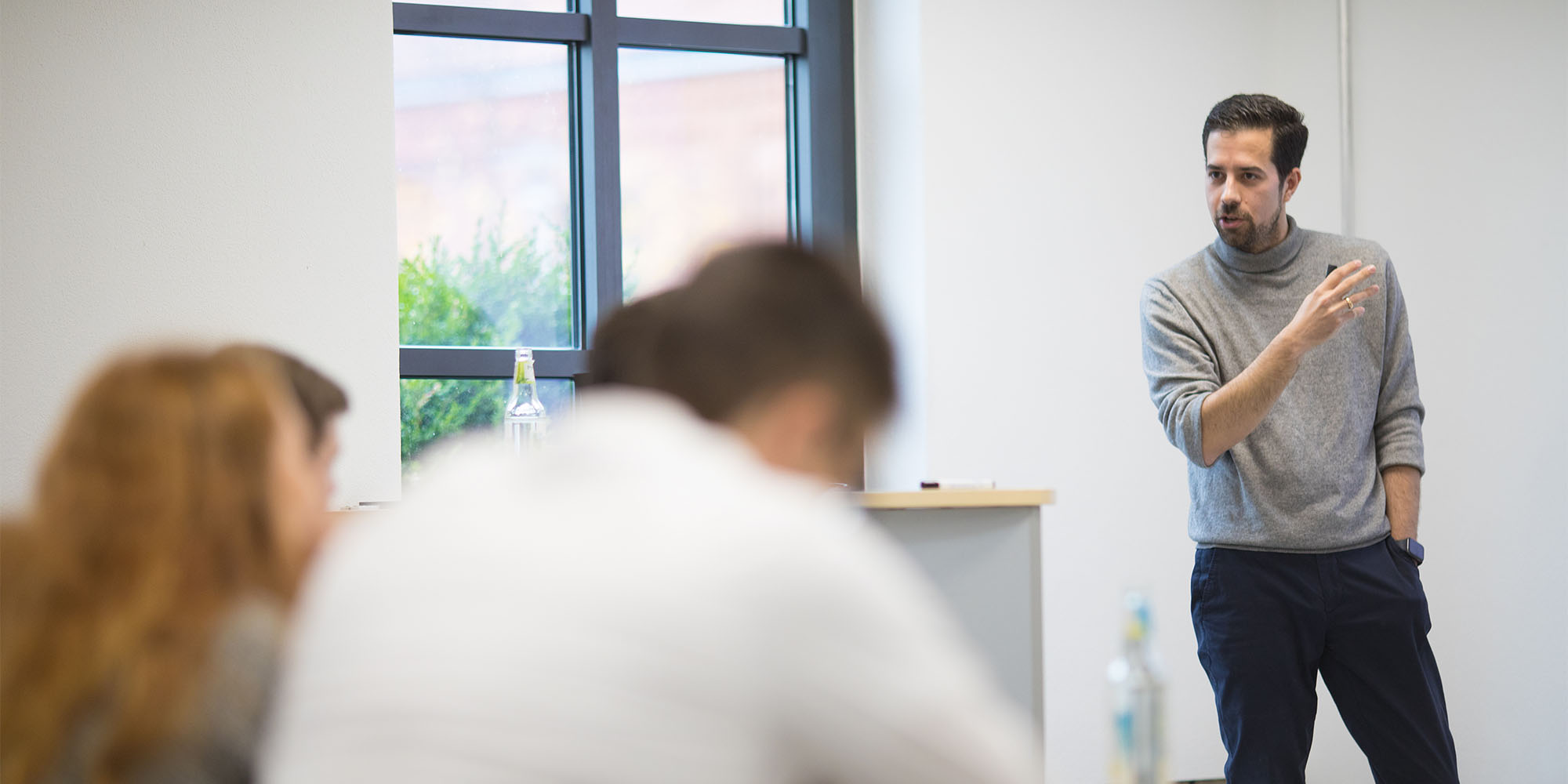DigiMeet took place virtually on 10 June 2021 with the special topic “sustainability in digital transformation: charting new terrain, exploring tensions.” The main purpose of this interdisciplinary event was to provide a forum for early career researchers with a focus on digitalisation-related topics and to inaugurate a collaboration between the three organising institutes on this matter that was initiated by a memorandum of understanding in Spring 2021.

We briefly review here what was generally regarded as a very successful event where high-profile keynote speakers and session chairs interacted with creative and engaged doctoral researchers. DigiMeet attracted in total more than 100 participants who visited and/or contributed to two keynotes, five thematic sessions and five Open Spaces.
Proceedings opened with a keynote address by Ortwin Renn on “Digitalisation and sustainability – friends or foes?”. The relationship of digitalisation and sustainability to each other can be understood both in negative and positive terms, depending on the perspective and respective dimensions that are being taken into account. Polarisation is not very effective. Rather, successful implementation must include the following aspects: openness for design; public space; common good orientation; as well as room for creating and promoting sustainability.
After a lively exchange of views, this first talk was followed by thematic sessions. These provided time and space for interdisciplinary presentations, receiving feedback and fruitful discussions.
Session chairs as well as doctoral researchers enjoyed an “open atmosphere and the engaging discussions”, with a focus “truly on scientific, interdisciplinary exchange and not just presenting”.
Varied discussions showed that interdisciplinary perspectives on many timely topics are highly relevant:
- Regarding algorithms and technologies, what level of understanding should users ideally have/seek to achieve? And how may the level of understanding be measured in the first place, how could it be improved further?
- How can sociological analyses and qualitative methods augment current measurements of „motivated reasoning“?
- How can engineering approaches, for instance to working with „interactive tables“, also be enriched and utilised by sociologists?
- What role(s) can algorithms play in deliberative democracy? How are algorithmic decision-making systems impacting social inequality? Are social networking sites contributing to political mobilisation? If so, in what ways, considering both beneficial and harmful aspects? Are social media being frequented and used differently by different parties and their followers?
Indeed, discussions were so intense that they continued in Gather.Town and throughout the lunch break.
Afterwards, participant-driven Open Spaces in Gather.Town opened and doctoral researchers discussed exciting issues with respect to: transhumanism; collecting data from social media; making data differentially private; and ways of collaborating in the digital space. Again, debate took place across disciplines and was full of insights, such as:
- Developing axioms towards a “theory of sustainable data for networked societies” (Hamm/Miceli) requires a combination of human-computer interaction research with social science methodologies to grasp the intricate arrangements and complexities of collecting, processing and using data in fields such as computer vision and civic tech initiatives
- Developing a framework for the sustainable use of digital data is a transdisciplinary and multinational task, which has to involve multiple stakeholders from science and practice. With this objective, the DiDaT white book project brings together, amongst others: politicians; mobility experts; psychologists; researchers in environmental studies and agriculture; sociologists; as well as representatives from small and medium-sized enterprises.
- Research with social media data is handled differently in the various disciplines. The debate depends largely on legal constraints covering both platforms and researchers. Overall, humanities issues have received little attention in digitalisation research to date.
As a perfect way to finish this productive day, Elisa Lindinger proposed in her keynote speech that we should visualise the internet as a park, where users can spend time relaxing in a friendly and beautiful environment rather than somewhere that is hostile and over-regulated. A key point of this talk, how a society and we as individuals would ideally like not only to experience but also shape this virtual place responsibly and equitably, formed the basis of lively discussion later at the Gather.Town bar.
All in all, we look back at a highly productive first event of a new annual series. A survey amongst all participants further confirmed this positive view of DigiMeet 2021. A large majority of respondents concluded that the meeting was in essence either a “superb” or “a really good” experience. Feedback further indicated that the formats worked well, with participants able to network as well as exchanging ideas and results as intended. Along with some ideas and suggestions for additional topics, such as platform governance, digitalisation and infrastructure, degrowth, or more generally insights from political consulting, we will plan the next edition of DigiMeet on one of our Institute’s premises and are looking forward to meeting everyone in person!
The blogs published by the bidt represent the views of the authors; they do not reflect the position of the Institute as a whole.
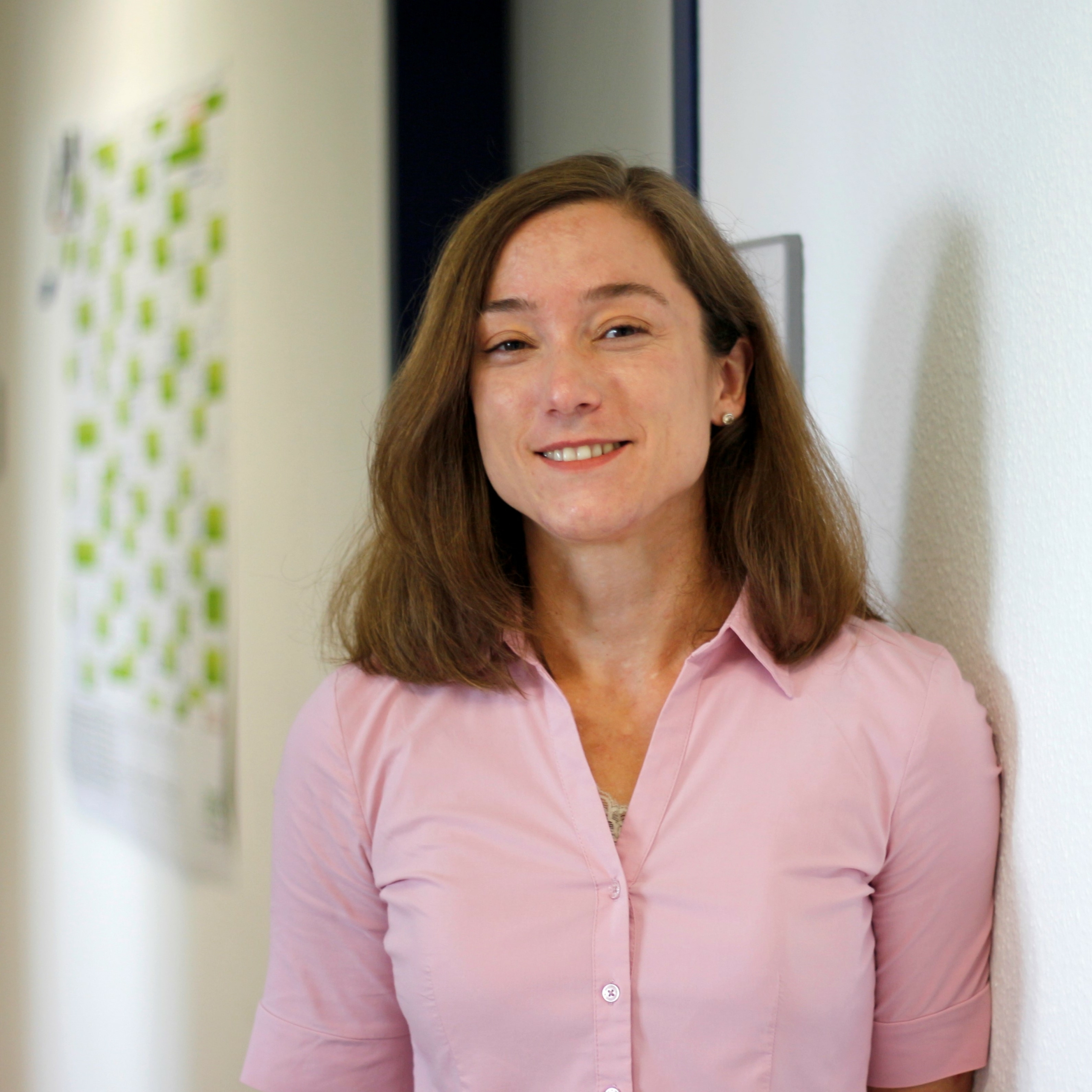
Nina Hahne studied Modern German Literature, Linguistics and English Language Studies at Ruhr University Bochum. From 2008 to 2011 she had a scholarship to work at the graduate academy for Saxony-Anhalt’s special state research field “Enlightenment – Religion – Knowledge. Transformations of the religious and the rational in the modern era,” and earned her doctorate in German Language Studies in 2013 from Martin Luther University Halle-Wittenberg. She worked as a research assistant and lecturer in the German Language Studies Institute at Heinrich Heine University Düsseldorf, as part of a project on journal literature during the Enlightenment era and as an academic assistant at the Centre for Information and Media Services at the University of Duisburg-Essen, on the joint project “E-Assessment NRW.”
At the Center for Advanced Internet Studies (CAIS), she is now working as project consultant.
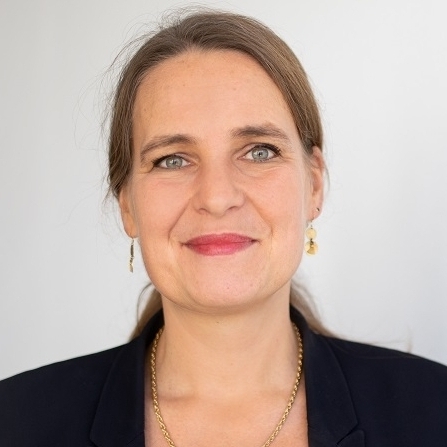
Claudia Oellers is Head of Research Management and Network Coordination at the Weizenbaum-Institut e.V.. Prior to this, this trained political scientist headed the office of the Council for Social and Economic Data (RatSWD), an independent advisory board of the German government whose task is to improve the research data infrastructure in the social, behavioral and economic sciences.
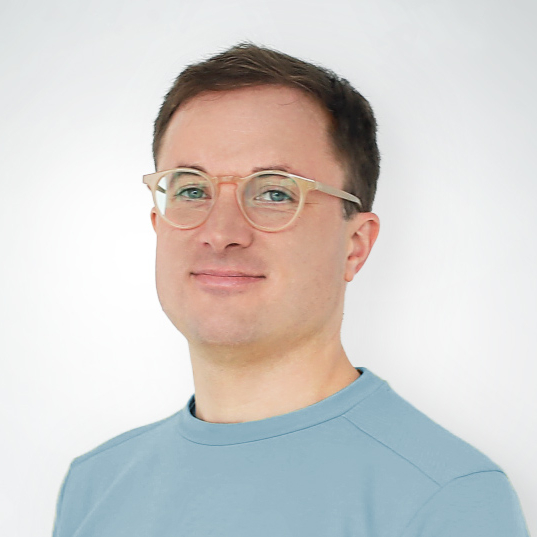
Julian Vuorimäki is senior research manager for network coordination at the Weizenbaum-Institut e.V.. His main responsibilities include open science, research data management, career development and committee support. Most recently, he worked at the headquarters of the Leibniz Association as senior research manager for open science and digitalisation. Before returning to Germany, Julian was employed by the European University Association in Brussels as project and policy officer for research and innovation. His disciplinary upbringing as a historian took place at the University of Konstanz.
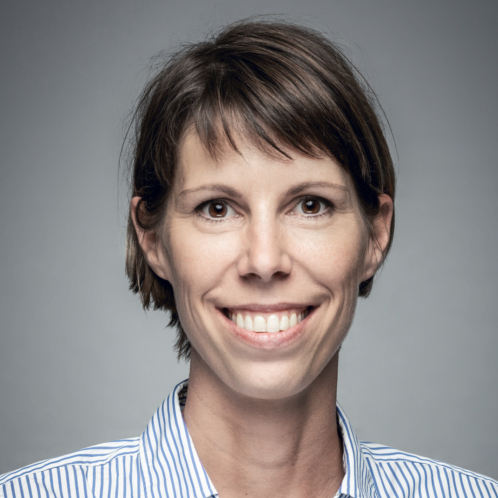
Maria Staudte is a Research Coordinator at the bidt with overall responsibility for the doctoral programme at the bidt. Prior to this, she was head of a junior research group in the Saarland University’s Cluster of Excellence, where she conducted research into speech processing in human-human and human-machine interaction. Finally, she worked as a Principal Investigator and member of the board of directors in a Collaborative Research Centre, covering various topics including data protection and empirical data collection. Through these activities, Dr. Staudte brings to the bidt extensive experience in teaching, research, management and, in particular, the supervision and counselling of doctoral students from various research areas.
Passend zum Thema
Deutschlands Internet-Institute rücken näher zusammen: Weizenbaum-Institut, bidt und CAIS schließen sich zusammen, um den wissenschaftlichen Nachwuchs besser zu fördern.



